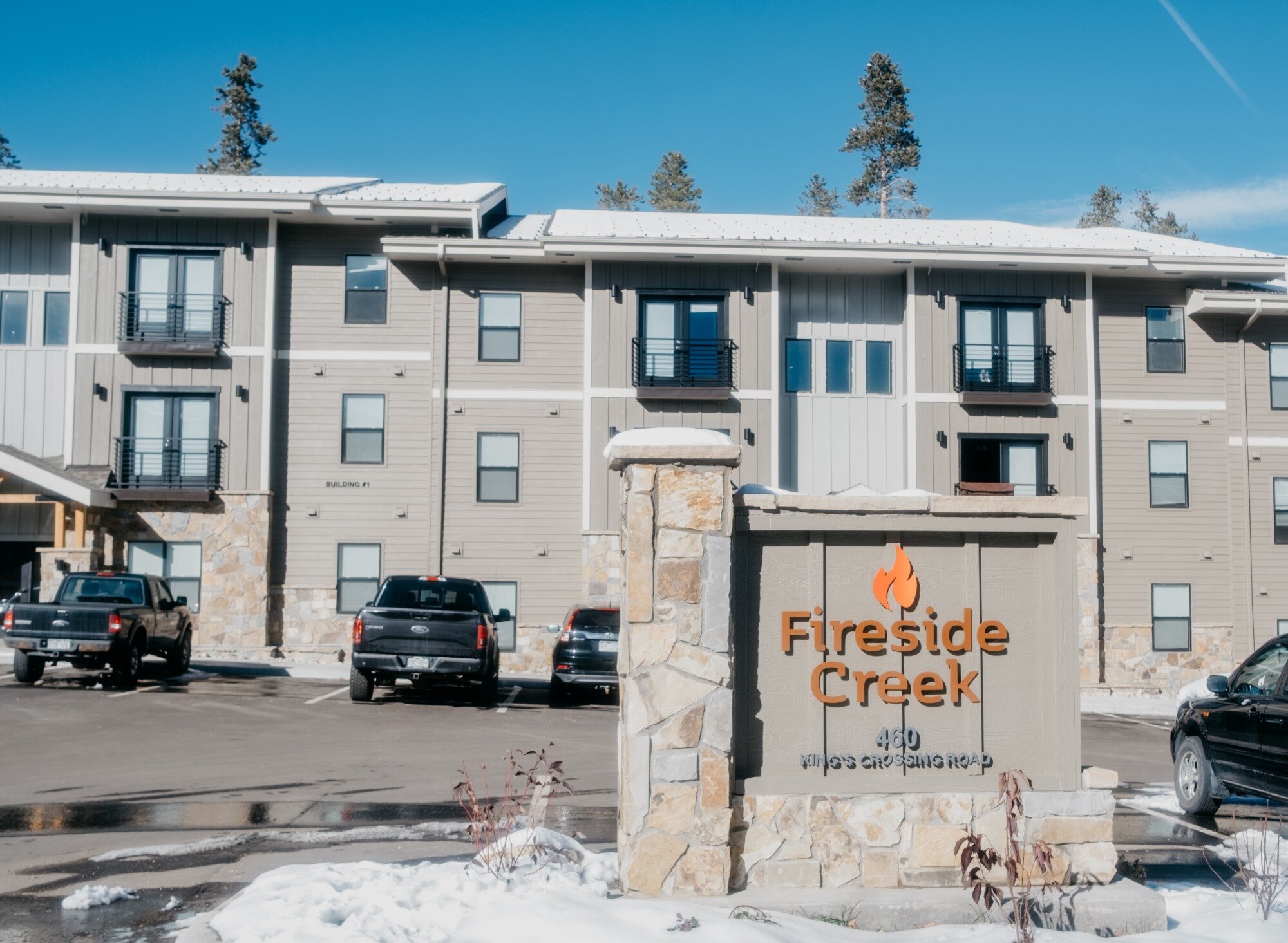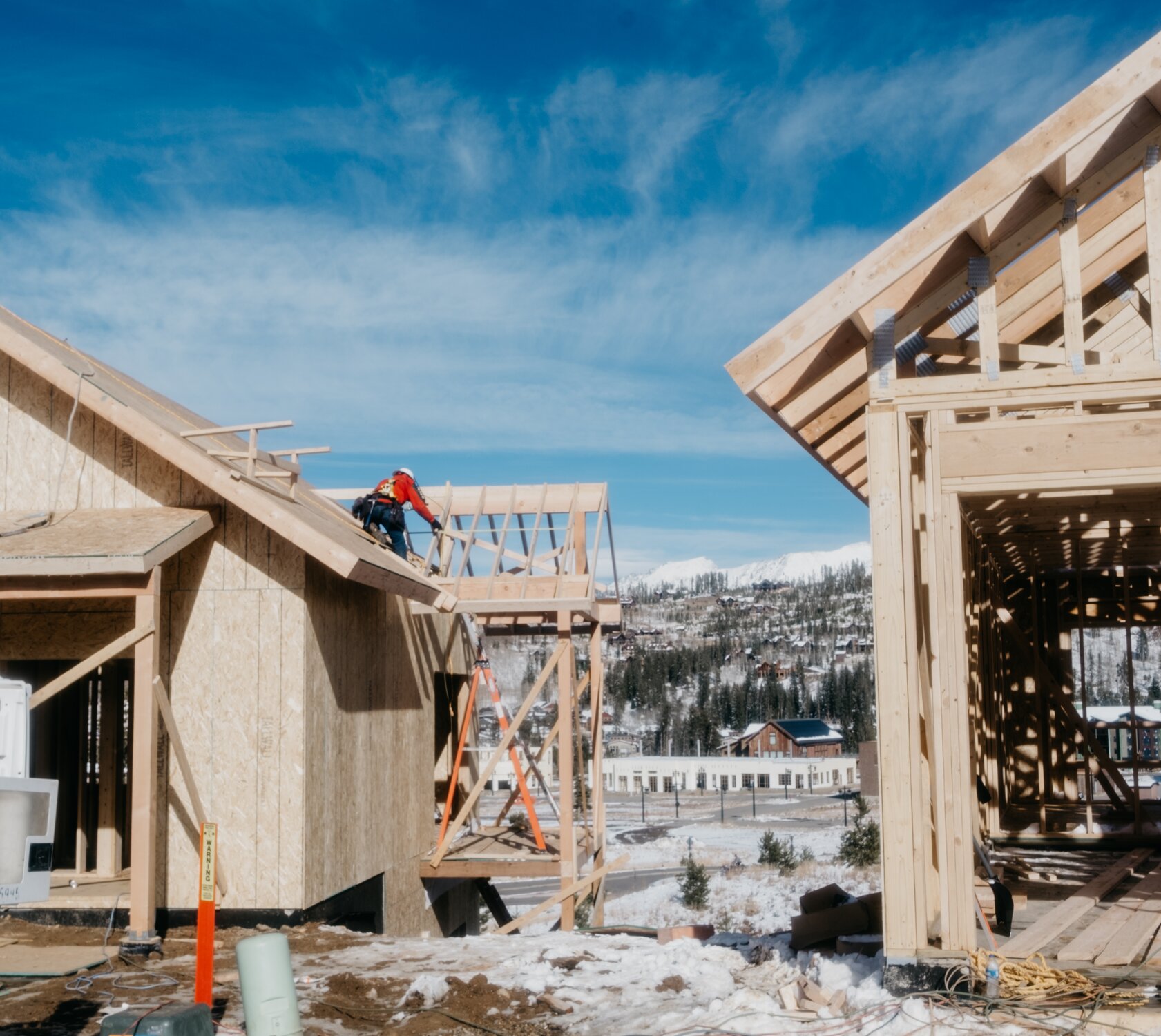Winter Park was once known as an affordable ski town. COVID-19 changed everything for locals.

WINTER PARK, Colo. — Sparkling, powdery snow glistens atop picturesque mountains as visitors drive into Winter Park, where a winding mountain road leads into town and you can see skiers carving down slopes. The views are idyllic. The ski resort, and world-famous mountain biking, make Winter Park — which sits 66 miles from Denver — a popular destination for visitors and outdoor enthusiasts.
And Jordan Gonzales will do anything to keep living in town — even work four jobs.
“It’s peaceful up here,” Gonzales said. “You don’t get that in the city.”
Gonzales, who has lived in Winter Park for five years, works at a local grocery store, the Winter Park Resort, a bed-and-breakfast and also does snow removal for Moon Frog Coffee, a local cafe. There, he trades maintenance work for discounted rent on his apartment out back.
Working all the time is draining, Gonzales said, but it’s a requirement to afford rent in Winter Park. Gonzales knows he could move somewhere else with a cheaper cost of living, but giving up daily snowboarding for affordability would be bad for his mental health, Gonzales said.
Still, he knows the cards of housing in a ski town are stacked against those without money.
“It's a ski town,” Gonzales said. “It’s for the wealthy.”
A Colorado conundrum
Gonzales’ problem isn’t unique. It’s one most renters — and many homeowners — understand about living in mountain towns. Demand is high and supply is low.
Prior to COVID-19, Winter Park was largely a one-day destination for Front Range outdoor enthusiasts. Long-time town residents described it as a quiet town where neighbors knew each other and residents spent the bulk of their time in the snow or on the town’s trails. Those who staffed the town’s tourism-based businesses could afford to live in the town.
But as the pandemic ravaged cities and employers allowed for remote work, many people traded city life for solitude and peace in Colorado’s high country.
A 2021 survey conducted by the Northwest Colorado Council of Governments and the Colorado Association of Ski Towns found many mountain communities grew by more than 40%. Remote workers, who made up the bulk of newcomers, purchased much of the already low housing supply. About two-thirds of the homes sold in 2020 went to newcomers, the survey found.
In Winter Park, nearly 80% of homes are owned by second homeowners, according to David Flaherty, CEO of the research firm Magellan Strategies.
“When COVID came along and people in Colorado discovered the mountain communities and descended upon them and it really had an impact on the quality of life,” Flaherty said.
“We’re talking about pizza shops, small restaurants, everyday small businesses were completely unable to find employees to operate, therefore unable to provide services, that's how bad things got,” Flaherty added.
Some used their new property as a vacation home and rented it on Airbnb and Vrbo, while others made it a permanent residence.
The same survey found home prices reached record highs, while rents grew 20% to 40% between 2020 and 2021.
“It feels like this whole problem started with COVID,” said Tim Hubbard, a Winter Park resident who owns four restaurants in Grand County.
Hubbard moved to Winter Park 25 years ago. Back then, he said, everyone he knew could live within the town of Winter Park with little issue. Now, many are moving out to other parts of the county — and neighboring counties — as housing dwindles and skyrockets in price.
In 2019, Hubbard owned one condo to house his employees because most of his restaurant staff came from out of town. But as housing prices increased, he began to lose staff members who couldn’t afford to live in town. After that, he began subleasing 25 additional rooms from other owners so he could house and retain staff.
“If you’d asked me three years ago if we’d be managing 25 bedrooms for our team members, I’d tell you, you were crazy,” Hubbard said. “But we had to.”
Specific problems with specific solutions
Alisha Janes, Winter Park assistant town manager, said many in Grand County know Winter Park as “the last great mountain town.”
Its status is earned, Janes said, because housing is still a bit cheaper than it is in some of Colorado’s glitzier mountain communities, like Aspen and Vail. Winter Park also has a more “humble” feel, Janes said. Those looking to buy property have options under one million dollars and the town boasts more casual pubs than glossy fine-dining establishments.
Because of Winter Park’s proximity to Denver, Front Range visitors make up the bulk of its tourism, Janes said.
Vacation towns around Colorado have pointed to short-term rentals as a major culprit of their housing crises. The scenario is similar in each: wealthy, out-of-town home-buyers purchase second homes in the mountains and rent them out nightly to turn a higher profit and use the home at their convenience.
Several municipalities have attempted to clamp down on the problem through higher taxes on short-term rentals and restrictions.
As others have restricted the number of short-term rentals in their communities, Winter Park has instead implemented what it calls the “short-term fix program.”
Those who own a property used for nightly rentals are eligible for a subsidy of up to $20,000 a year if they swap nightly visitors for a long-term local tenant.
“I think folks participate in that program because they saw the benefit to our community,” Janes said. “Our assumption is that if we’re going to recruit a new staff member that’s coming from outside our community, we have to provide housing for them to be able to come to our community.”
The bulk of overnight tourists in Winter Park also opt to stay in short-term rentals over hotels — largely because the town has a smaller supply of hotels — so Janes said axing nightly rentals altogether made little sense for the town.
Still, those in the town believe Airbnb and Vrbo have strained an already-limited housing stock, and the problem has not improved over the years.
“The price of buying is so high that when you buy a place, they want to see money coming back as fast as possible,” said Gonzales. “So that’s why they do vacation rentals.”
Hubbard said a short-term fix is essential while the town works to build more long-term affordable housing. Prior to 2020, Hubbard said restaurants were typically open seven days a week throughout the year. Now, he said, even in the town’s highest-tourist seasons, many have had to shut their doors because those who staff local businesses can no longer afford to live in the town they keep running.
“When the folks that work here can’t afford to live in the community, it becomes pretty stale,” Hubbard said. “It’s just visitors and second homeowners.”
A town trying to keep its head above water
Rebecca Kaufman knows the town she loves will never have enough affordable housing for all who want it.
Kaufman sits on the Town Council, owns a local restaurant and rents her home. She hopes to stay in Winter Park for the long-term, but doing so often feels impossible, even for a business owner.
“Winter Park has tried different strategies as best we can, but we’re not done,” Kaufman said. “We’ll never be done.”
Kaufman stood inside one of Winter Park’s new affordable, workforce housing complexes as she described her own housing perils.
The complex, called Fireside Creek, holds 50 deed-restricted units reserved for tenants working full-time in Grand County who make 80 to 120% of the area median income.
Units boast new appliances, hardwood floors and easy access to the ski resort and downtown area. Kaufman said the Town Council prioritized making the apartments feel dignified and desirable.

Fireside Creek is Winter Park’s newest deed-restricted workforce housing complex.
Photo: Peter Vo, Rocky Mountain PBS
“Places like this give you that sense of ‘we need you, we want you, be a part of our community,’” Kaufman said. “That feeling of belonging is a huge part of housing. It’s not just living somewhere but feeling like you’re wanted and you belong somewhere.”
The town has three affordable workforce housing complexes, with 20 single-family homes being built for those interested in home ownership.
“If you can’t truly see yourself in this community long-term and see yourself being able to build wealth through homeownership, you might be tempted to go somewhere else where you can find more affordable housing,” Janes said. “It’s a huge challenge.”
Those interested in workforce housing apply through the town’s website to prove they meet the income and employment qualifications for a unit. If the town has more applicants than slots open, it holds a lottery.
Winter Park Resort — Grand County’s largest employer — also built dormitory-style housing for more than 330 employees. Jen Miller, spokesperson for the resort, said 330 won’t solve the county’s housing pickle, but is hopeful it makes a dent.
Many residents said they would not have been able to stay in a community they love if they did not have access to workforce housing.
“Finding stable housing and affordable housing is almost impossible,” said Loreta Silverio, a Winter Park resident who works for a local business and shares a two-bedroom apartment with her husband. “You might have housing one day but by the end of that month, you might be out of a house.”
Silverio felt relief when she was accepted into town-provided housing, it meant her apartment would never be sold from under her and she didn’t have to worry about sudden sky-rocketing rents.
“I feel very fortunate knowing the owner isn’t going to ask me to move out or anything like that,” Silverio added.

Construction workers build affordable single-family homes for Winter Park’s local workforce to have home-buying opportunities.
Photo: Peter Vo, Rocky Mountain PBS
Kaufman, who is also a board member on the statewide Colorado Association of Ski Towns, said a bill proposed in the 2023 Legislative Session forcing municipalities to overhaul their zoning laws and build more housing — without deed restrictions, which are caps on how much housing can cost — would have been detrimental for mountain towns.
The bill, sponsored by senators from around the Denver metro area, was met with criticism from ski towns across the state and the legislators who represent them. Those towns and their representatives said they voted against the bill because of its blanket solutions, like more density, without consideration of smaller towns with different needs.
“On the Front Range, maybe it’s a density issue. Up here, if you don’t pass deed restrictions on housing, density is not our issue,” Kaufmann said. “You’ll never get to the end of the list of someone that wants to own a second home in a ski resort town.”
While more units may be one part of the solution, Kaufman said blanket density is useless without restrictions on who gets to live in the new housing.
“Had that bill passed, you would have effectively destroyed mountain communities,” Kaufman added.
Alison Berg is a reporter at Rocky Mountain PBS. You can reach Alison at alisonberg@rmpbs.org.
Peter Vo is a multimedia journalist at Rocky Mountain PBS. You can reach Peter at petervo@rmpbs.org.